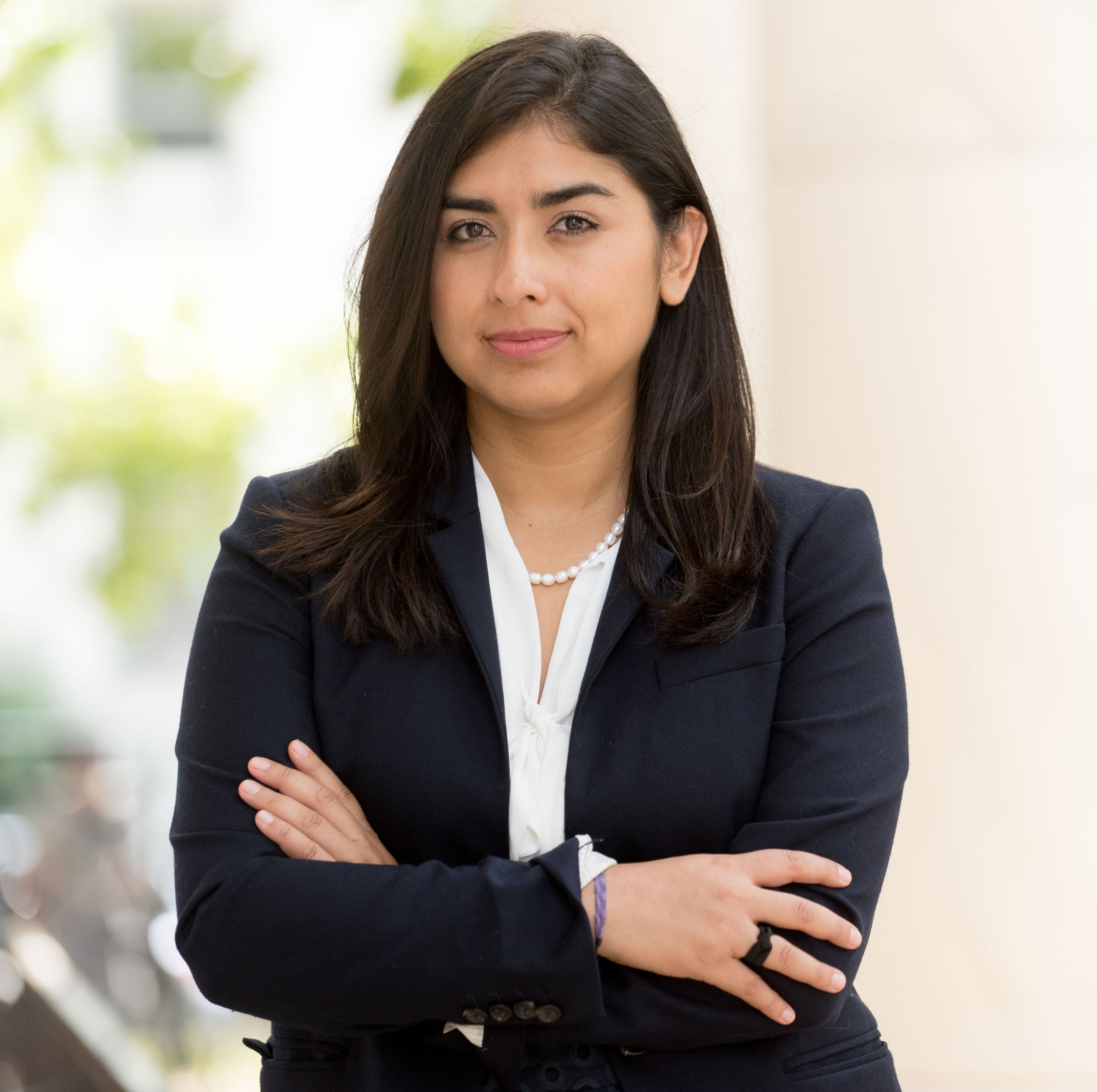Catalina Vallejo graduated with a PhD in Sociology from the University of Virginia’s Graduate School of Arts & Sciences in August 2019. Catalina’s dissertation research focused on reparations to victims of civil conflict in Latin America. Catalina currently works in the intersection of research, consulting, and policy as a Senior Research Executive at ORB International in Charlottesville, VA.
Q. What future career/s did you envision when you began Graduate school at UVA?
A. I started the PhD with the intention of becoming a professor. My father is a professor in Economics in Colombia, and I always admired his job and lifestyle. In addition to caring deeply about research, I enjoy teaching, so being a tenure-track professor sounded like a dream job. However, this started to change during the period I was writing my dissertation proposal. During this process, I realized the importance of an interdisciplinary project with an impact on sociology, as well as public policy. It motivated me to frame my dissertation for a broader appeal to different grant sources by communicating real-life implications. I thought that the funders of social science research would value research proposals with implications on policy.
Q. How did you explore your interest in this career path?
A. When I was doing fieldwork in Colombia and Peru, I met people with PhDs who were also interested in development and civil conflict while working for non-academic institutions like United States Agency for International Development (USAID), International Organization for Migration (IOM), or Save the Children. They provided extensive advice on the sectors, connected me with potential employers, and reviewed my job applications. I also connected with PhD alums from my department with successful careers outside academia and conducted informational interviews about their work lives, and their transition from grad school to their current jobs. Another community was my friends at Darden School of Business. They taught me about consulting work, shared valuable job search strategies and prepared me for the CASE interviews, and ultimately boosted my confidence. Finally, advisors at UVA’s Career Center guided in narrowing my career interests and advised on translating my PhD experience into diverse skills.
Q. What advice would you give PhD students and postdocs interested in pursuing a career similar to yours?
A. While I am new in this career path, I am thrilled as I get to conduct research all day. I currently design, budget, and manage numerous descriptive and evaluation projects at ORB International. This involves not only quantitative and qualitative data analysis but managing all aspects of projects from budgeting and staffing to client meetings and writing reports. I would advise PhD students, especially in social sciences and humanities disciplines to talk about their dissertation as a project that has public policy or real-life implications. So, the language of assessment and evaluation should be included in the short pitch of your project. It is also useful to communicate international experience through fieldwork and the ability to speak a second language. Finally, write a blog post or a white paper of dissertation work for non-specialist audiences, to communicate that you are a versatile writer.
Q. What are some valuable transferable skills and experiences for PhDs to transition into this career?
A. Some skills that are desirable for this type of works are
- Data analysis
- International research
- Writing literature reviews
- Grant writing
- Publishing
- Public speaking
Q. What are some opportunities that enable developing these skills?
A. In addition to teaching, I worked as a graduate research assistant, which is not common in my department. Furthermore, I participated in conferences outside my discipline and collaborated with the academics in the Political Science Department, who included me on a consulting project with USAID. Finally, I got external funding from the Social Science Research Council (SSRC) that provided valuable mentorship.
Q. Based on your job search, application and interview experience, what will you advise PhD students?
A. I started actively searching for jobs 3-5 months before graduation, but I should have started the process earlier. PhD students should start looking for jobs at the beginning of their last year. Crafting applications is a time-consuming process. I used templates from friends with careers beyond the academy, the resources available from the Career Center handbook, and requested friends to review these materials.
The advisors at UVA Career Center invited me to one of their ‘Development career community’ brunches to discuss my research. I connected during this meeting with my current supervisor, and three weeks later, she emailed me, asking if I wanted to interview with them. So, find every opportunity to network with professionals in your careers of interest.
Also, PhD students should be well prepared for interviews. I used to record myself and practice with people who have experienced the same process. I created a word document with 50 possible questions and prepared answers for all of them. Finally, I had created a compelling narrative of my grad school experience that showed how I could be a perfect match for development or consulting jobs. A recruiter once commented that at the end of the day, they wanted someone they can trust and get along with. In addition to the wonderful research skills, PhD students should put emphasis on social and communication skills in different environments.
Finally, negotiating offers is hard and varies on circumstances. As an international student, immigration status and sponsorship was a key factor. On receiving offers, I primarily negotiated with employers on a commitment to sponsoring my visa after my Optional Practical Training (OPT) period.

